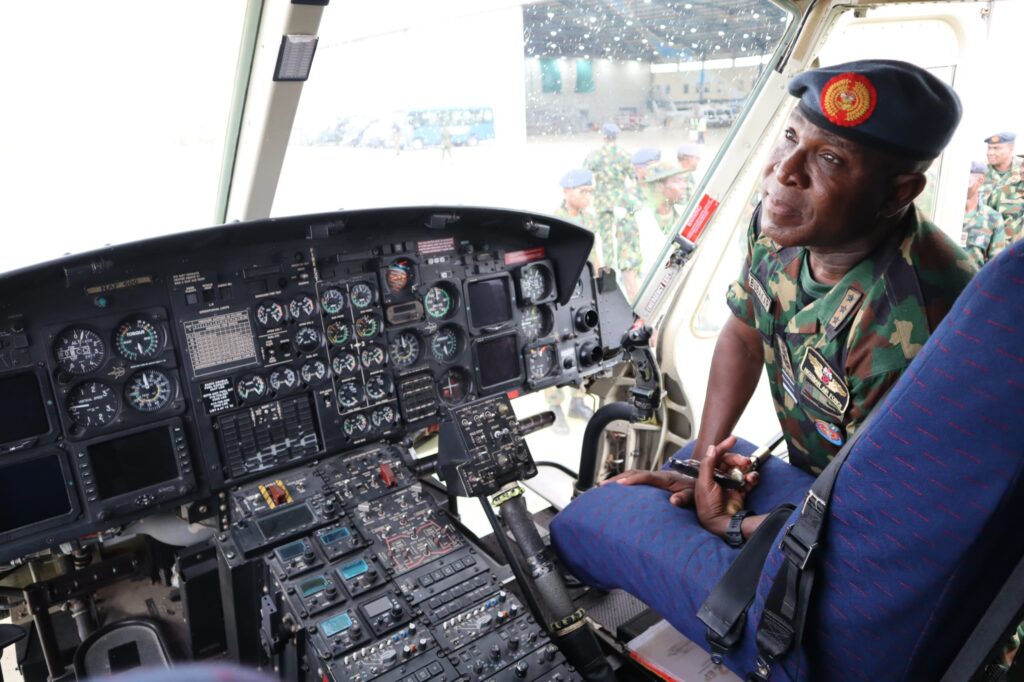The Nigerian Air Force (NAF) is working to improve the serviceability rate of its fleet to 90% by the fourth quarter of the year.
The serviceability push is part of a broader emphasis on self-reliance and building a robust maintenance culture in the Air Force. The current serviceability rate is 73%, and 90% is considered a high standard.
“Mission success in contemporary air operations is directly tied to the availability, airworthiness, and sustained performance of aircraft platforms,” Chief of the Air Staff, Air Marshal Hasan Bala Abubakar, said during the opening remarks at the 2025 Aircraft Engineering Conference in Abuja.
Abubakar said investments in predictive maintenance, spare parts, ground equipment and digital documentation systems will help achieve the serviceability goal, Military Africa reported. The serviceability effort unfolds as the NAF beefs up its squadron. It inducted 15 new aircraft over the past two years, with an additional 49 cutting-edge aircraft — a mix of fighter jets, helicopters and transport aircraft — expected by the end of 2026.
“Each of these high-tech platforms demands sophisticated, data-driven maintenance to remain mission-ready,” Abubakar said, adding that the recent adoption of digital documentation protocols will enhance maintenance precision and accountability.
Abubakar also has stressed the importance of local partnerships to reduce reliance on foreign services. In December, he visited Caverton Helicopters’ maintenance, repair and overhaul facility in Lagos to evaluate the progress of 2,500-hour and five-year inspections of the NAF’s Bell-412 helicopters. Abubakar described the ongoing collaboration with Caverton as a sustainable solution that aligns with NAF’s priorities, Military Africa reported.
In June 2024, NAF engineers accomplished a 4,800-hour periodic depot maintenance of a Dornier 228 (DO228), a versatile twin-turboprop aircraft known for its ruggedness and short takeoff and landing capabilities. This task previously had been outsourced to foreign maintenance repair organizations.
In-house maintenance was cost-effective and reduced the DO228’s downtime. Chief of Aircraft Engineering, Air Vice Marshal Pius Oahimire, said the achievement was a testament to the NAF’s burgeoning engineering expertise, Military Africa reported.
The NAF also is adapting to evolving security threats and challenges, particularly with regards to counterterrorism and border security. For the past decade or so, its involvement in asymmetric warfare forced changes in how it addressed unconventional threats from terror groups, particularly Boko Haram.
The NAF overhauled its training curricula to accommodate the terrorists’ more sophisticated tactics and bolstered research and development to keep pace with emerging technologies and their application in modern warfare. It also has worked to establish an air vehicle development center.
The NAF has gained some recent momentum. Since January, it has killed 592 terrorists in Borno State amid a counterterrorism campaign against Boko Haram and other terror groups. The NAF also destroyed more than 200 vehicles and 166 logistics hubs during intensified operations across the state.
“This year, our air campaign is quicker, more precise, and more surgical,” Abubakar said in an Africanews report. “We are eliminating high-value targets, crippling logistics networks, and dismantling cells that threaten peace in the northeast.”
These operations included strikes across critical locations such as Azir, Damboa, Dikwa, Fatori, Gonori and Mallam. NAF aircraft conducted 798 combat missions, logging more than 1,500 operational flight hours under Operation Hadin Kai, the military’s regional counterterrorism mission.
In mid-August, the NAF said it killed numerous armed kidnappers in a joint air-and-ground operation in Zamfara State’s Makakkari Forest, where more than 400 gunmen reportedly were preparing to attack a village. The forest is a hideout for assailants who commit high-profile kidnappings in the area. Airstrikes, in coordination with ground attacks, killed “several notorious bandit kingpins and scores of their foot soldiers,” NAF spokesperson Air Commodore Ehimen Ejodame told the BBC.
The NAF also works with other African countries. In September 2024, Abubakar and his Egyptian counterpart, Lt. Gen. Mahmoud Foaad Abd El-Gawad, pledged to enhance cooperation and collaboration, particularly in pilot training and research and development.
“Both leaders acknowledged the rich history of training collaboration between their Air Forces, which they agreed should be further leveraged — especially by the Nigerian Air Force (NAF), which has previously benefited from the training of around 50 pilots by the Egyptian Air Force (EAF),” Air Vice Marshal Edward Gabkwet, NAF director of Public Relations and Information, said in a statement.

